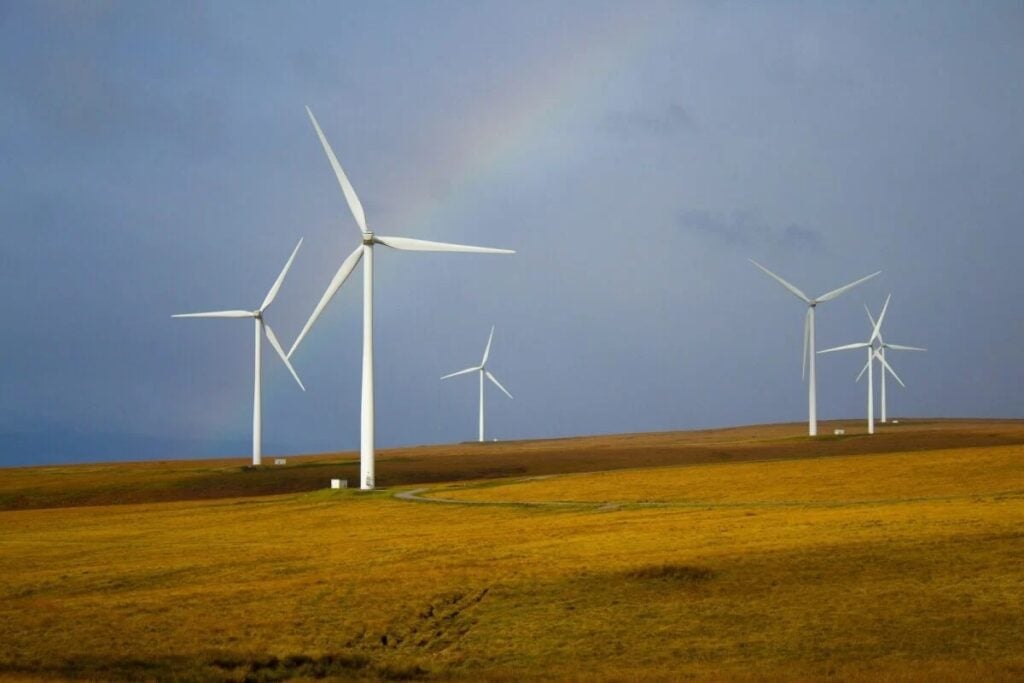The Climate Change Committee (CCC) has released its Fourth Carbon Budget for Wales, recommending a dramatic cut in emissions to reach Welsh net zero goals.
Wales’ Fourth Carbon Budget covers the five-year span between 2031 and 2035, and recommends a 73% emissions reduction from the 1990 baseline level over this period. This equates to a 58% reduction in emissions from 2022 levels of 35.7 MtCO2e; 2022 is the most recent year for which data is available. Emissions in Wales have decreased by 37% since 1990, and the reductions set out in Wales’ First Carbon Budget (2016-2020) were achieved.
In order to achieve the Fourth Carbon Budget, the CCC has made 16 priority recommendations to pave the way to a decarbonised Wales.
These include supporting households to roll out low carbon heating solutions such as heat pumps; expanding EV charging networks and decarbonised public transport; publishing a net zero skills action plan to address barriers to growth in the green workforce; and working alongside the UK government to develop an engagement strategy to bring clear, impartial and trustworthy information about reducing emissions to Welsh households.
Welsh carbon emissions contribute to the overall UK carbon budgets, although their timeframes do not exactly align. In February, the CCC set the Seventh UK Carbon Budget, which covers the period of 2038 to 2042 and sets the recommended emissions level at 532 MtCO2e, including emissions from international aviation and shipping. This is an ambitious figure that represents a three-quarters cut from current emissions levels.
Wales’ emissions in its Fourth Carbon Budget will contribute to the Fifth and Sixth UK Carbon Budgets, which will run from 2028 to 2032 and 2033 to 2027 respectively.
Under the CCC’s “balanced pathway” to reduce emissions in both Wales and the wider UK, Wales is expected to reach net zero CO2 emissions two years sooner than the wider UK, a fact attributed to Wales’ far smaller role in the aviation industry. Electrification is set to deliver 67% of the total Welsh emissions reductions required by 20233 under the balanced pathway, with surface transport and home heating needing particular focus.
Port Talbot, harsh lessons and the just transition
Notably, the CCC’s report somewhat criticises the manner in which transition efforts at the Port Talbot steelworks have been handled to date. The last blast furnace at Port Talbot was closed in September 2024, with a new electric arc furnace set to be installed on site by 2027, supported by a £500 million investment from the UK government; the new electric arc furnace will have a similar production capacity to the previous blast furnace, but with an expected emissions footprint up to 90% lower.
However, the transition plan, which leaves a several year gap between the loss of jobs at the plant and creation of new ones, has been criticised as not representing the best aims of a ‘just transition’, with the CCC stating that “industry and government must learn lessons from the experience in Port Talbot to guide future efforts to decarbonise other strategically and locally significant emissions-intensive industries”.
Commenting on the release of Wales’ Fourth Carbon Budget, interim chair of the Climate Change Committee, professor Piers Forster, said it presented “an opportunity for the Welsh government to work closely with the UK government”. He added: “To deliver against this budget and its climate commitments, immediate action is necessary. Wales must decarbonise its economy and transition to one that doesn’t rely on foreign fossil fuels.”






